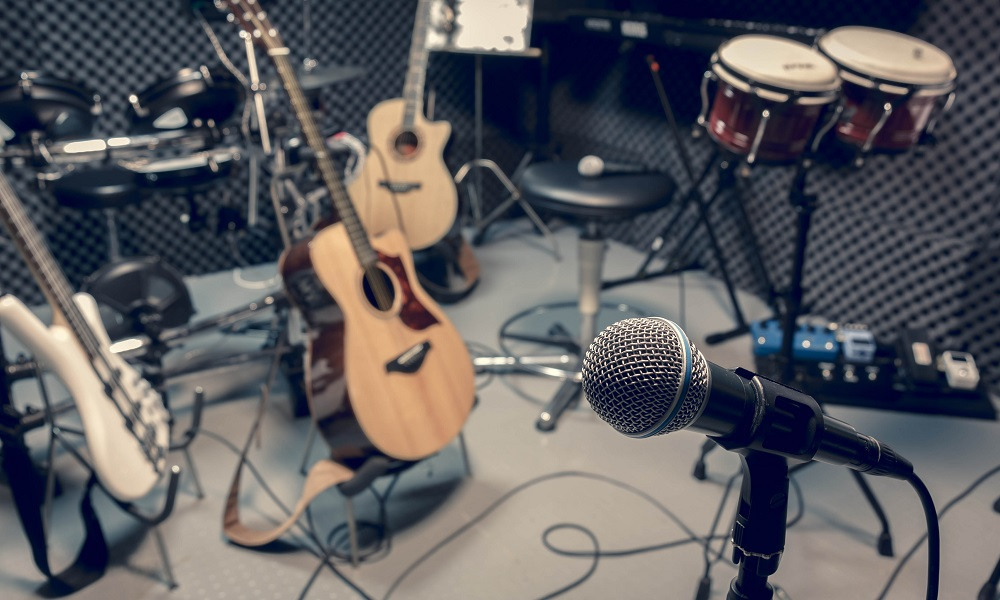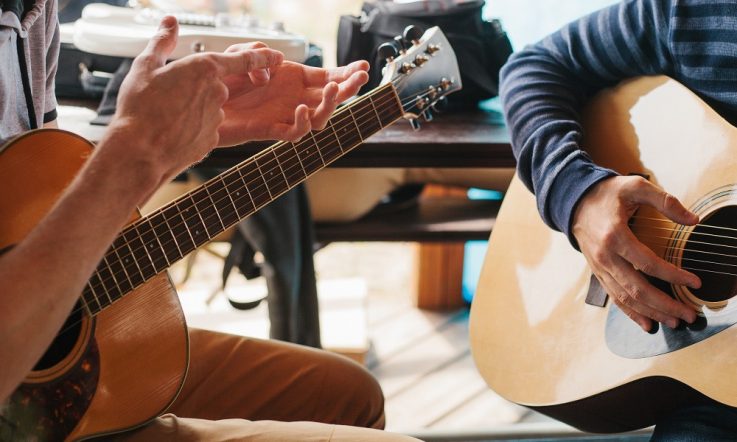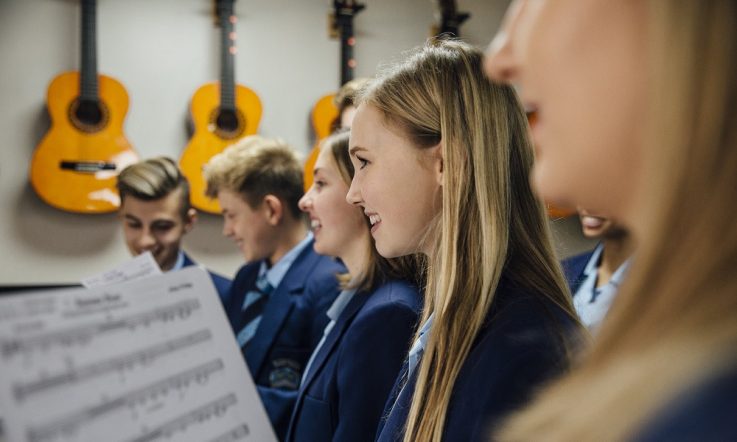At St Andrews College in New South Wales, students organise and feature in industry-standard events throughout the school year. It's all part of music teacher Antonio Chiappetta's aim to share his industry knowledge with students to give them a music education that's as relevant to the real world as possible.
Antonio Chiappetta has been a music teacher at St Andrews College – a secondary school about 30 kilometres from Sydney in Marayong, New South Wales – for 15 years. After receiving a music degree and touring the world as part of the music industry for a few years, Chiappetta returned to the school he was educated at to begin teaching music. Late last year, he was named ARIA Music Teacher of the Year.
‘I try to give kids a platform in general … trying to showcase them and getting them to feel as comfortable as possible in their skin and share their gifts with the community,' Chiappetta tells Teacher.
Bringing industry knowledge to the classroom
A trademark event at St Andrews College is their annual Creative Arts Night (CAN). The event has been held for around 15 years and invites students to perform live in front of their peers and the wider community, encouraging them to build confidence in a real-world setting.
The event runs like a music festival and is directed by Chiappetta. Originally set up as a showcase night for dance and music students, the event has now outgrown its first home of the school hall, with crowds of over 2000 people now converging on the school's double football field once a year to see a range of performances.
Former students who have pursued music are invited to perform, and Chiappetta also invites contestants from TV show The Voice to make guest appearances. This is made possible through his industry connections – Chiappettta performs with friends who have been part of the popular TV program. The event also sees visual arts, photography and business students, among others, working to organise the event.
‘The idea is to pull as many students in the community together to give them these real-world experiences,' Chiappetta says. ‘And it's regardless of which genre or style that your events decide to be. I think giving kids a platform in general is just a really good thing for school spirit and young kids to kind of be able to have a reason to be able to rock up to school and feel connected to each other.'
Careers education in the music classroom
Many students from St Andrews College have taken up careers in music – working as performers, producers and some as music educators themselves once they leave school. According to Chiappetta, seeing students he's taught pursue journeys in the industry confirms that he's on the right track in terms of his role as an educator.
‘We get bands come in that have named themselves after the music room and the street that the school is on – so it's pretty special and I've loved helping these kids out because they really value, I guess, my background and the opportunities I'm giving them.'
He adds that by regularly performing and touring himself, he can offer students relevant industry knowledge from outside of the classroom, and help them understand what opportunities they have in the field of music.
Chiappetta sees his ARIA win as a win for music education and hopes other teachers can [adopt] some of the high-spirited culture he's worked to develop at the school.
Antonio Chiappetta actively works in the music industry, which he says enhances his teaching by helping him to keep his knowledge up-to-date and relevant for students.
Think about the subject(s) you teach. What strategies do you have for staying closely connected to the relevant industry? How do these connections impact your teaching? How could you improve your industry relationships?



